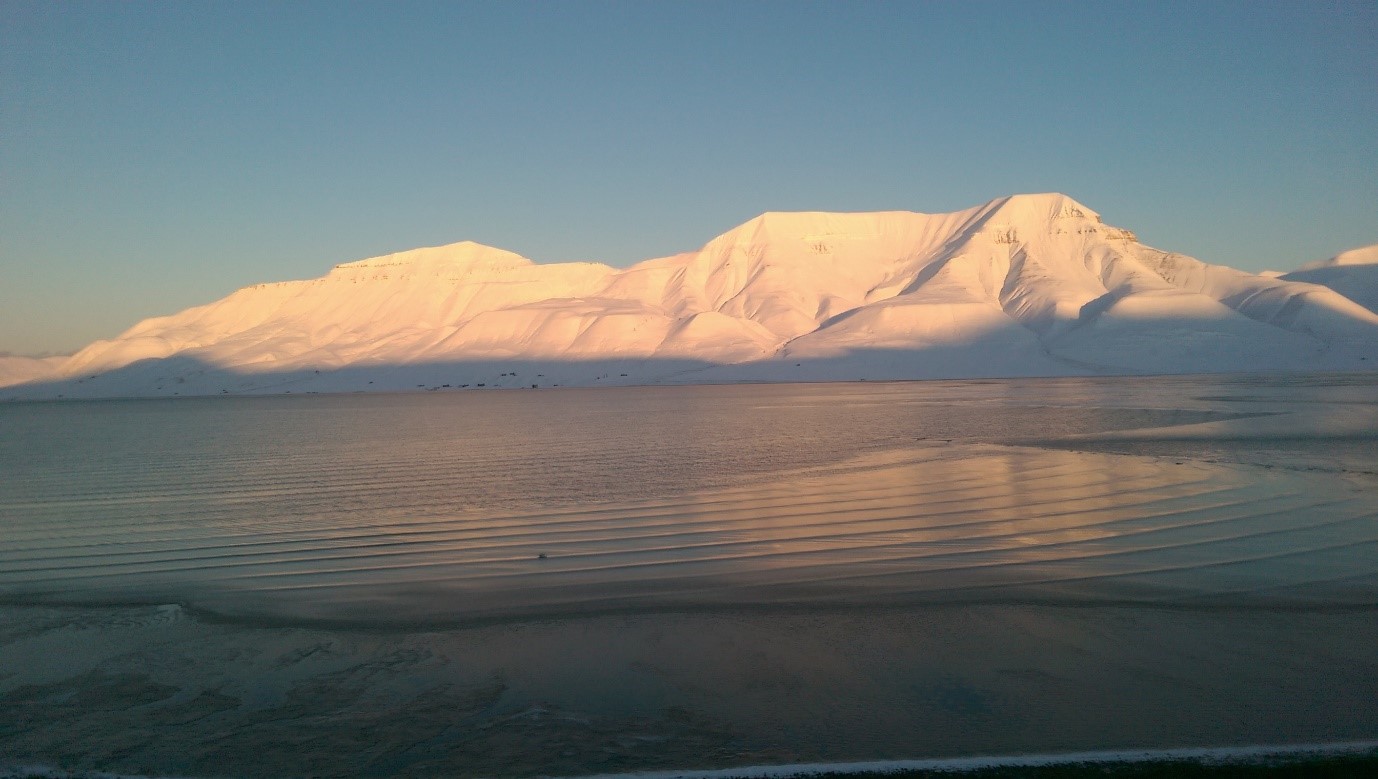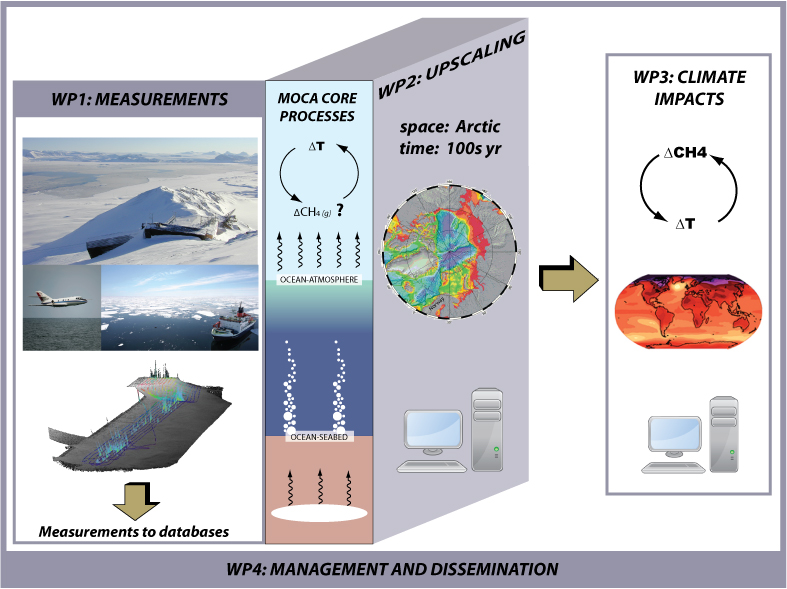
| MOCA is a new project funded by the Norwegian Research Council that will run between 2013-2016. – Key activities will include:Determination of seabed-ocean methane fluxes from in situ seabed measurements (MASOX landers and accompanying buoys with measurement instrumentation) targeting CH4 bubble release area offshore from Prins Karls Forland. – Determination of the atmospheric gas fraction from MH dissociation through ocean column profile sampling for dissolved and gaseous CH4, and measurement of ocean-atmosphere interface CH4 fluxes and isotope abundances. – Extended time-series measurements of atmospheric CH4 (including in situ CH4 mixing ratios and isotope abundances) at Zeppelin Observatory. – Aircraft-based vertical profiles of CH4 concentration and isotope abundances over the ocean around Svalbard and Siberia. – The project is anticipated to generate new knowledge on the entire Earth system and climate change using the region around Svalbard as an experimental test bed to study polar processes. Project summary document (PDF) Full project proposal |
| MOCA will combine land-, ship- and aircraft-based measurements (WP1) in coordinated measurement campaigns to improve the description of the current environmental state of MH in the Svalbard region. Measurement and modelling activities will quantify the present-day CH4 emissions from marine seep sites west of Prince Carl Forland to the atmosphere, and will identify the main influences on the atmospheric fraction. The detailed observation and process-based studies in WP1 will be up-scaled spatially over the Arctic region and for future time periods to generate CH4 emission estimates related to MH in the Arctic Ocean (WP2). Finally, the radiative forcing (direct and indirect effects) and climate impact from MH-based CH4 emissions will be calculated under present-day atmospheric composition and realistic future temperature scenarios (WP3). The potential of the biogeochemical cycle as a strong feedback mechanism will also be investigated. |

| MOCA consists of four complementary Work Packages (WP) WP1 Improved process understanding and description of the present state of the ocean and atmosphere around Svalbard (NILU) WP2 Understanding of present and future methane release from ocean (UiT) WP3 Present and future projections of climate effects (CICERO) WP4 MOCA management and coordination (NILU) |
